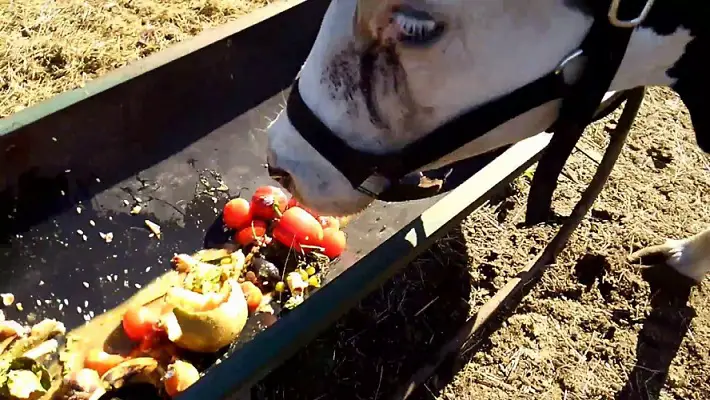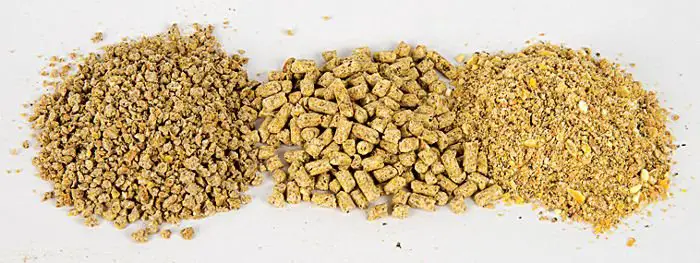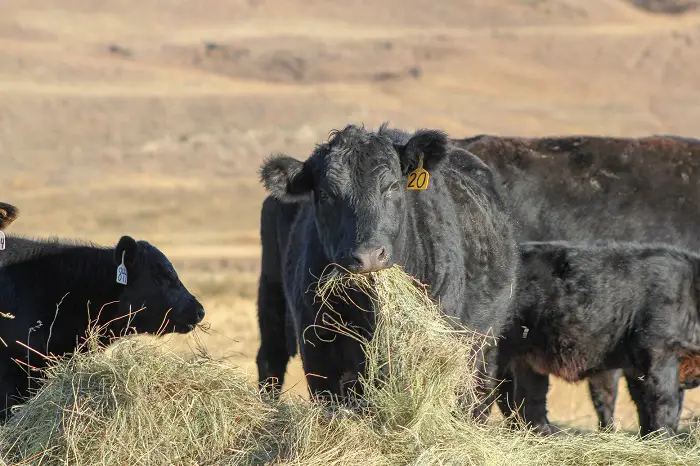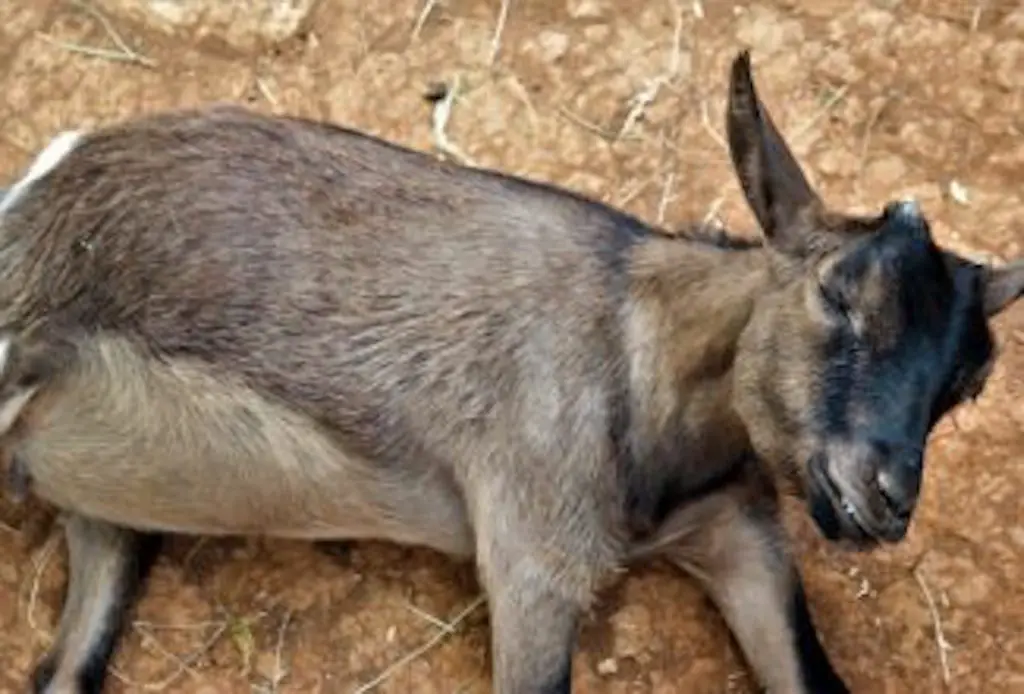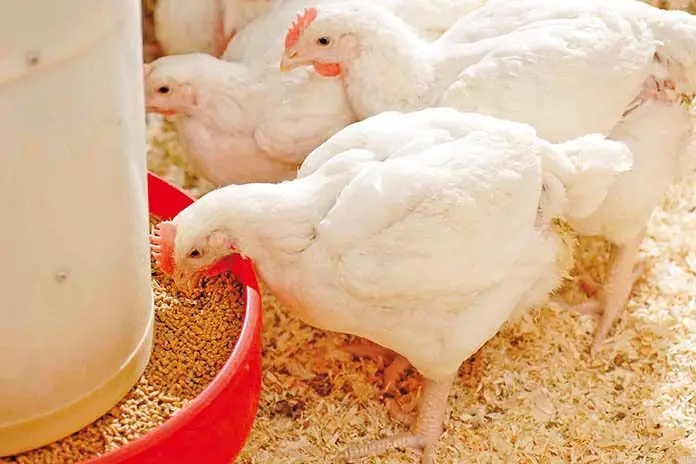The breeding of cows is a very lucrative and beneficial business. Cows can be kept for both meat and milk. They can also be kept as pets and other purpose especially in some communities where they are considered as status symbols. Given the above stated reasons, it may come as no surprise therefore that knowing what exactly cows can eat and find nutritional is very important. By nature, cattle are herbivores and grazers, meaning their primary sources of food is green vegetation such as grass. They can also eat other food substances and often they are not very picky. If not monitored they can also consume food substances that may not be good for their health. It is wise therefore to consider what is being fed to your cow. That being said, the big question is whether cows eat cantaloupe or not. The answer to that question is fortunately a yes, cows can eat cantaloupe. This article therefore will look at the various considerations to look into when feeding cantaloupe to cows.
Contents
What Is Cantaloupe?
Cantaloupe is a fruit that belongs to the muskmelon group, together with other fruits such as honeydews, casabas and Persian melons alongside other variants. The cantaloupe fruit is round and has a smooth ribbed skin which is usually greenish-tan and has a dark netting. The flesh of the cantaloupe fruit is orange and thus has a sweet flavor. Natively, cantaloupes are from Iran and India, however today they are grown in most warm weather regions such as South America, Mexico and Africa. Cantaloupes are available almost year-round thanks to advanced transportation and storage methods making them a very ideal snack to feed to cows.
Nutritional Benefits Of Feeding Cantaloupe To Cows
Cantaloupe is well known to be consumed by humans however cows do also eat cantaloupe, in fact not only do cows eat cantaloupe but they also find them palatable, sweet, and juicy. Just like watermelons, cantaloupe is very good for cows and especially dairy ones. Cantaloupe is packed with vitamins such as vitamin A and C. It also contains potassium and fiber which are extremely beneficial to cows. It has been found that approximately one cup of cantaloupe could contain as much as up-to 54 calories. This is very good because too many calories can potentially be problematic. The potassium found in cantaloupe is very good for the cow’s blood pressure control and hence keeping the heart very health. Cantaloupe also contains minerals and antioxidants which effectively boast the cow’s diet.
Additional Health Benefits Of Cantaloupe
One of the reasons cantaloupes are so good for cows is that the potassium in cantaloupe boasts muscle function, while at the same time the high-water content of the cantaloupe is very refreshing to the cows on a very hot day. The antioxidants in cantaloupe are very good at protecting the cells from cell damage that is usually caused by free radicals. These free radicals are dangerous because they are unstable molecules and their presence can cause cell damage. Cows also need beta-carotene in order to help reduce the dangers of many chronic illnesses such as heart disease and cancer. Thankfully cantaloupe contains a lot of beta-carotene together with a lot more other health benefits necessary in ensuring the cows grow big and strong and produce good milk and meat.
What To Look Out For When Cows Eat Cantaloupe
Just like anything else, too much of something can be problematic and cantaloupe is no exception when eaten by cows. One of the biggest problems to look out for when feeding cantaloupe to cows is choking. This is mainly because it can be a bit difficult for the cow to chew cantaloupe, especially if the cow swallows a very big piece of the fruit. The cantaloupe can get stuck in the cow’s throat hence resulting in choking. A good solution however to prevent choking is to cut the cantaloupe into small pieces that are manageable for the cow. Cantaloupe contains a lot of sugar which can be problematic and cause stomach upset, together with diarrhea and any other issues such as gastrointestinal issues. This however can be mitigated by giving the cantaloupe to cows along with a lot of water and also ensuring it is given in moderation.
Feeding Cantaloupe To Cows
Before one can give cantaloupe to cows there are a few important details to take into consideration in order to get the most out of cantaloupe. It is of paramount importance to consider the fact that cantaloupe can’t make the entire diet of the cow especially over the long term. This is important because cantaloupe is mostly water and can’t provide all the nutrients that a cow would need to grow big and strong. It is rather best to give the fruit as a treat to supplement the main diet of the cow. For the best results proportions are also very important, and as such it might be a good idea to consult trained professionals such as a veterinarian to get information on the best proportions when feeding cantaloupe to cows. The large amounts of vitamin A and C however make cantaloupe a very good treat for cows.
Growing Cantaloupe
When growing cantaloupe in order to later on feed to cows, it is important to note that pests and disease such as aphids, cucumber beetles, downy mildew and powdery mildew together with other viruses can cause a lot of havoc, and hence need to be kept in check with appropriate pesticides. Cantaloupe prefers a lot of free space in the garden, together with a sunny location and soil that has good drainage properties hence these should be a must.
Other Health Snacks For Cows
At times when one can’t get hold cantaloupe there are other good alternative snacks for cows such as bananas, watermelons, apples, carrots, mangoes and oranges. Fruits such as carrots are very good sources for vitamins such as vitamin C, K and A, while apples are very rich in thiamin, riboflavin, potassium and vitamin B-6. All of these are very good for the cows and boast their health greatly.
Conclusion
In conclusion, yes cows can eat cantaloupe, and in fact they find the snack to be very palatable. The high-water content and high vitamin levels are very good for the cows and can greatly boast its health. It is wise however to give the fruit in moderation and as a supplement rather than the main dish for the best results.
